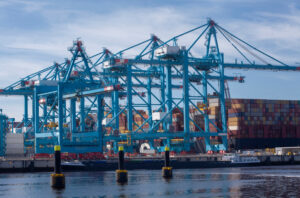Five international freight transport and cargo handling organisations are collaborating on the production of new guidance on packing standards for freight containers and other cargo transport units.
The Container Owners Association, the Global Shippers Forum, the International Cargo Handling Co-ordination Association, the TT Club and the World Shipping Council are co-operating on a range of activities to further the adoption and implementation of crucial safety practices throughout the global supply chain.
On 14 September the group published a ‘Quick Guide’ to the United Nations sponsored Code of Practice for Packing of Cargo Transport Units (the CTU Code), together with a Checklist of actions and responsibilities for the guidance of those undertaking the packing of cargoes in freight containers specifically.
One of the aims of this collaboration is to promote awareness and wider use of the IMO/ILO/UNECE Code of Practice for Packing of Cargo Transport Units – the CTU Code.
There have been several widely reported container fires aboard ships, where containerised cargoes may have been the cause of, or contributed to, such fires.
The organisations believe that consistent, widespread and diligent adherence to the CTU Code by all parties within global CTU supply chains would significantly reduce these types of incidents, some of which have resulted in fatalities and serious injuries amongst ships’ crews and shore-side staff.
Other occurrences, such as container stack failures, vehicle roll-overs, train derailments, internal cargo collapses and incidents of invasive pest contamination, can also be traced to poor packing practices. The organisations believe that a greater awareness of the CTU Code and the packing practices and techniques it contains will help to reduce such incidents.
To do this the organisations are working together as the Cargo Integrity Group and have identified four areas of activity to raise the awareness and improve understanding of safe cargo packing practices.
These include promoting awareness and adoption of the CTU code; seeking changes in regulatory requirements to improve their clarity, application, implementation and enforcement, including to the International Maritime Dangerous Goods (IMDG) Code; monitoring of CTU packing performance through support for strengthened cargo screening processes and more effective container inspection regimes; working with other industry and governmental stakeholders in promoting awareness and better understanding of safe cargo packing and handling practices.









